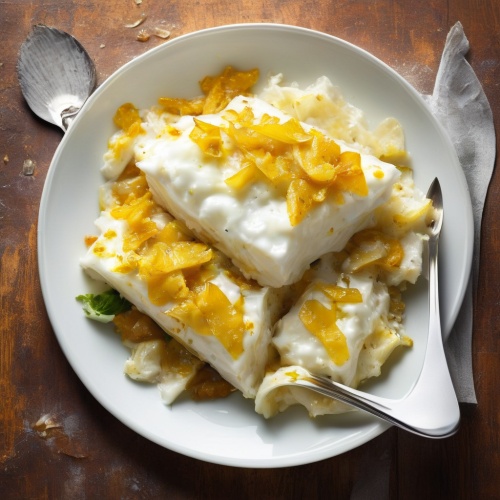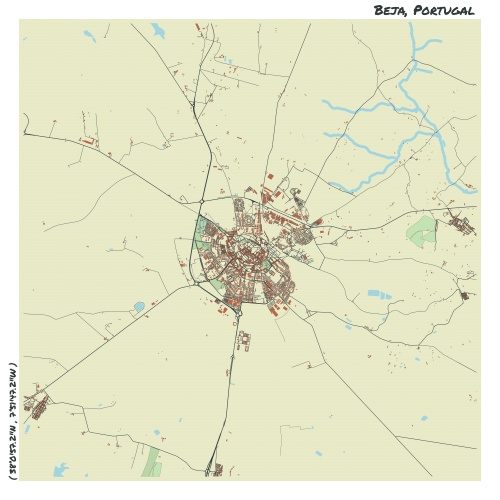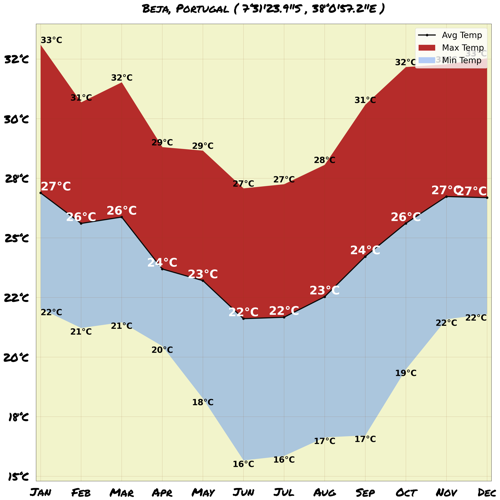Understand
Beja, also known as Pax Julia, is a city that holds the rich history of the Romans. Surrounded by remains of Roman walls, the city boasts a castle that showcases medieval architecture at its finest. Standing atop a high hill, the castle offers breathtaking views of the Alentejo country and the Cintra mountains. The walls of the castle are adorned with mysterious and intriguing hieroglyphics. Beja's agricultural richness, with its cultivation of cereals, olive oil, and wine, adds to the beauty of the surrounding valleys. The city also showcases its religious heritage with churches such as Our Lady of the Conception, St. Iago, and Santa Maria da Feira. With various modern amenities like schools, banks, and libraries, Beja combines the old and the new, making it a fascinating destination for history enthusiasts and explorers.
Map & Climate
Popular Foods
 Bacalhau (Codfish)Bacalhau is a staple in Portuguese cuisine, primarily consisting of dried and salted codfish that is rehydrated and prepared in various ways. It's often cooked with potatoes, onions, and olives, as well as other regional ingredients. The dish can be found in numerous variations across the country, such as bacalhau a bras, where it is mixed with eggs and served with fried potato strings, or bacalhau com tomate e cebola, featuring a tomato and onion sauce.
Bacalhau (Codfish)Bacalhau is a staple in Portuguese cuisine, primarily consisting of dried and salted codfish that is rehydrated and prepared in various ways. It's often cooked with potatoes, onions, and olives, as well as other regional ingredients. The dish can be found in numerous variations across the country, such as bacalhau a bras, where it is mixed with eggs and served with fried potato strings, or bacalhau com tomate e cebola, featuring a tomato and onion sauce. CozidoCozido is a hearty stew made with various meats, including sausage, chorizo, and beef, along with vegetables like cabbage, carrots, and beans. This traditional dish is typically slow-cooked for hours, resulting in a rich and flavorful broth. Cozido is often enjoyed as a comforting meal during colder months, and is particularly popular in the north and center of Portugal.
CozidoCozido is a hearty stew made with various meats, including sausage, chorizo, and beef, along with vegetables like cabbage, carrots, and beans. This traditional dish is typically slow-cooked for hours, resulting in a rich and flavorful broth. Cozido is often enjoyed as a comforting meal during colder months, and is particularly popular in the north and center of Portugal. Pastel de NataPastel de nata, also known as custard tarts, are a beloved sweet treat in Portugal. These petite, golden-brown pastries feature a crisp outer layer of buttery pastry dough, enveloping a warm and smooth egg custard infused with hints of vanilla and cinnamon. They are traditionally served with a dusting of powdered sugar and are best enjoyed slightly warm or at room temperature. Pastel de nata can be found at any time of day, whether as a breakfast pastry, midday snack, or evening dessert.
Pastel de NataPastel de nata, also known as custard tarts, are a beloved sweet treat in Portugal. These petite, golden-brown pastries feature a crisp outer layer of buttery pastry dough, enveloping a warm and smooth egg custard infused with hints of vanilla and cinnamon. They are traditionally served with a dusting of powdered sugar and are best enjoyed slightly warm or at room temperature. Pastel de nata can be found at any time of day, whether as a breakfast pastry, midday snack, or evening dessert.




Comments
NO COMMENTS